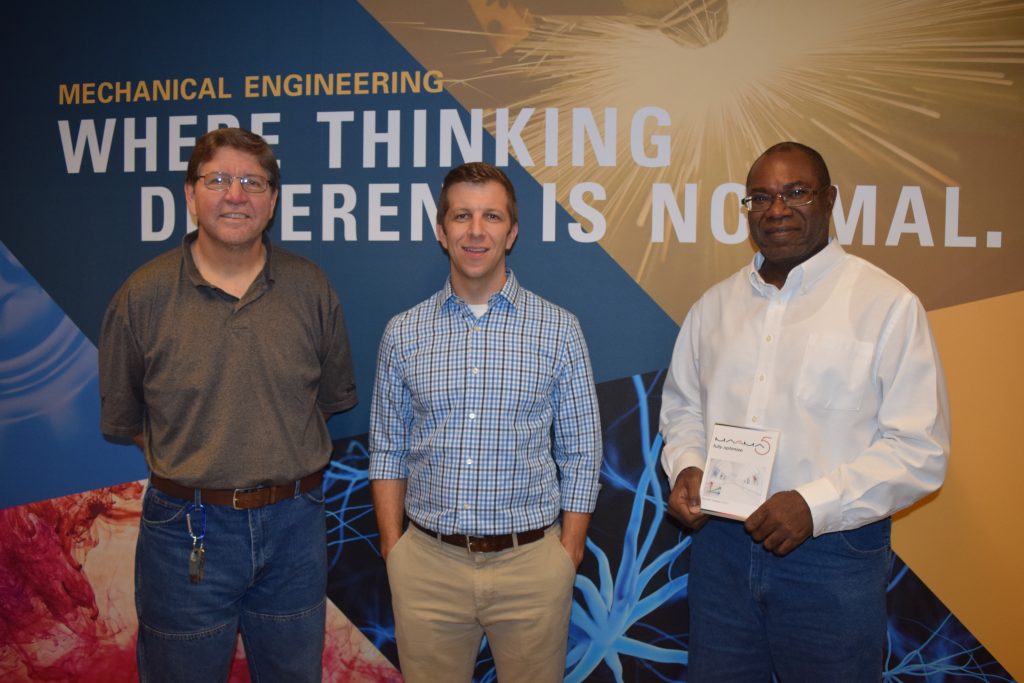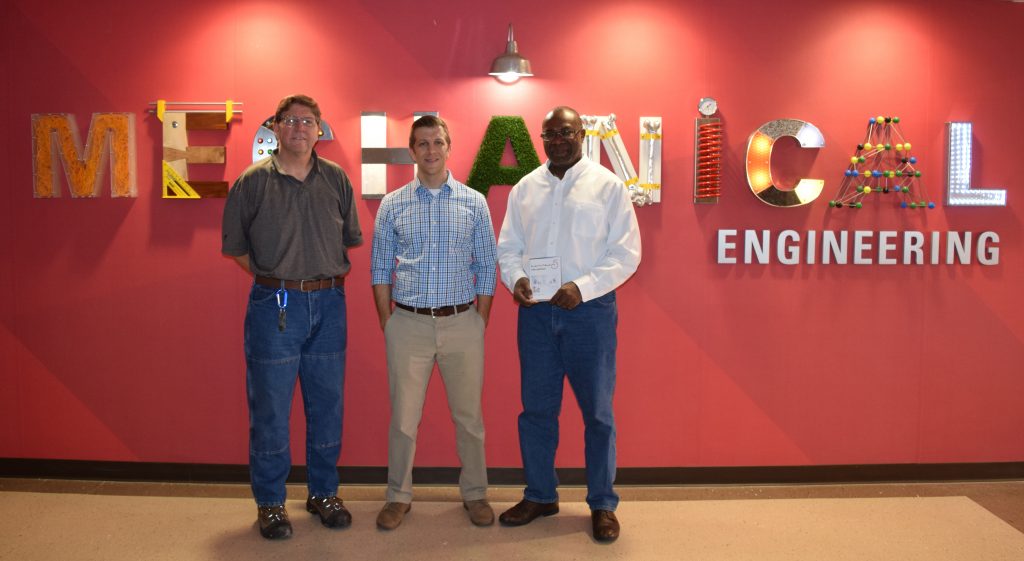
Similar to a set of calipers, micrometers and tape measure, computers have become tools that are part of the daily routine for many mechanical engineers.
Students in the ME 324 Manufacturing Engineering Lab work closely with a simulation software program known as MAGMASOFT® which helps to model various casting processes for a wide variety of different metals. Traditionally, engineers would combine engineering principles with trial and error when developing castings however as Emmanuel Agba – a senior lecturer in mechanical engineering – explains, software programs such as MAGMASOFT® are able to simulate different manufacturing processes in a virtual environment beforehand, which can in most cases dramatically reduce the costs and labor associated with trial and error.
“With a software program like MAGMASOFT®, you not only get the software but you get the engineering too,” said Agba. “The software is developed based on a real work environment.”
Iowa State University has contracted with MAGMA, Inc. since 2009, when Dr. Agba joined the ISU faculty. Agba first worked with the software when he was a Manufacturing Manager for Ford in Michigan and felt that it would be worthwhile to use it with his students too. He developed training courses at Ford to teach engineers how to use software tools but felt that if these skills can be taught in colleges and trade schools, it will help students to be better prepared when they enter the work force.
“When I came to Iowa State, I felt that we needed to develop students with skills that will benefit the industry. The linkage between schools and industry is very important,” Agba said.
Not only does Agba prepare students for jobs through coursework but also through their participation in various student groups and activities. He serves as the faculty advisor for Team PrISUm, the solar car racing team at ISU, and his students also utilize several engineering software programs when designing and manufacturing parts for the solar car.
MAGMA is headquartered in Aachen, Germany with offices and subsidiaries in Brazil, China, Czech Republic, India, Korea, Singapore, Turkey, and the United States. With many companies embracing more of a global presence than in the past, Agba said he emphasizes to his students that the field of mechanical engineering should be viewed from an international perspective.
“Iowa needs to be a global industrial hub which serves Iowa State, but also focuses on the skillsets to be exported around the world like Africa, India, China, and Mexico”
Agba has worked closely with Roy Stevenson, Customer Development Manager at MAGMA, Inc. in Schaumburg, Ill. during this collaboration. Stevenson received his MS in Industrial Engineering from Iowa State in 2004 and he said he was eager to partner with his alma mater on this project.
“MAMGA, Inc. was excited to develop a partnership with Iowa State because of its reputation as an outstanding engineering school. It is our belief that the many engineers that graduate from ISU will benefit from using MAGMASOFT® to understand the metal casting process as students, and MAGMA, Inc. will also benefit down the road when these same engineers insist that MAGMASOFT® is used on the components they are designing, sourcing or producing once they have left Iowa State and started their careers in various industries,” he said.
Stevenson was on campus earlier this month to meet with Agba and discuss the software. The discussion resulted in Stevenson offering Agba a free upgrade from 10 seats of MAGMASOFT to 20 seats to accommodate high demand from ME students. During his visit he also observed that the campus has changed a lot since his time as a student.
“While touring the engineering facilities on my last visit to ISU, I was blown away by the facilities that the ISU students have access to. There is no better way to learn manufacturing processes than to work with them in a hands-on environment,” said Stevenson. “ISU takes this practical experience and couples it with lectures from experts in these fields. This is experience and process knowledge that will be used on the job from day one.”
MAGMA partners with 20 different universities in North American as well as many more globally. Additionally, MAGMA does regular outreach activities with high schools and trade schools to promote the metal casting industry and engineering career opportunities.
“As a student, to use the exact same technology that engineers in industry are using, while at the university, is experience that is invaluable,” he said. “To come into a new job and a new career and hit the ground knowing not only the manufacturing processes, but also the best available technology to understand those processes and to efficiently and effectively design components for those processes is really valuable.”
